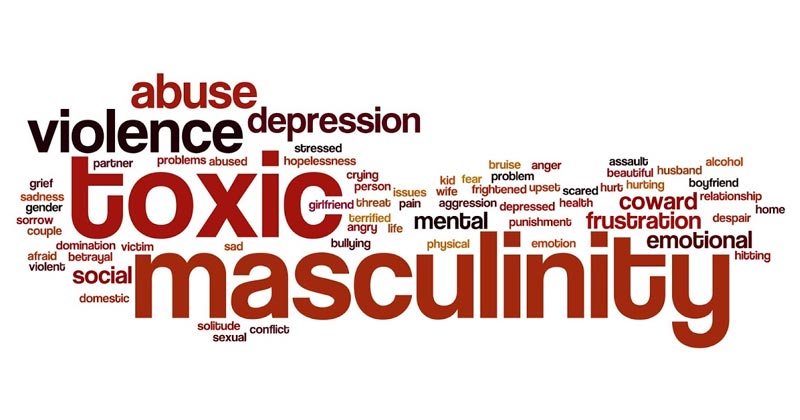What Is Toxic Masculinity? Toxic Masculinity, a concept existing in the society since centuries but only recently has the term come to everyone’s notice. Feminism, misogyny and toxic masculinity are few topics which are being discussed now more than ever.
“But by far the worst thing we do to males — by making them feel they have to be hard — is that we leave them with very fragile egos. The harder a man feels compelled to be, the weaker his ego is.”
― Chimamanda Ngozi Adichie, We Should All Be Feminists
It is not uncommon to hear people tell men to “man up” or “be a man”. The typical behavior as per this is supposed to be – immune to feelings and emotions, the only feeling to exist is anger and the behavior should better be authoritative which resorts to violence if not obeyed.

Century old practices and societal norms enforce this behavior on men. What if there are few men, who feel a lot, apprehensive about being angry or violent? Would society accept them?
Well, maybe not because these men are labelled as ‘weaker men’. The problem is never with the ‘masculinity’ but with the behavior, it generates making males go awry.
Bollywood is the embodiment of Indian society. All these typical Bollywood masala films are plastered with machoism and manliness the entire course of the movie.
In most films, the hero can be seen as this strong, wearing his vest so tight that it may tear any moment and flashy ripped muscles. This hero can beat up 3-4 men at once just by waving his arm and do much more.
The purpose is to either teach the miscreants in the society a lesson or to save the ‘damsel in distress’, of course, the weaker element in the society. And in the process of doing so, there will be one or two item number objectifying women while the men enjoy by staring and calling names.
The underlying tone of most of the films is that the man ‘mans up’ by using his two important weapons – anger and violence. The recent change in movie scripts, be it biopics, women-centric films or issue-based films has been heartwarming to see. But we have a very long way to go.

The real problem with toxic masculinity is that it assumes that there is only one way of being a man. The protagonist in the movie, Kabir Singh can be seen as one of those toxic males.
The man goes around commanding the girl he falls in love with, let aside asking for her consent every time he gets close to her. Few years later, our hero smokes, drinks, abuses and self destructs, only because of the girl who left him.
The dominating voice in him which tells the girl that he likes her because of the way she breathes. CRINGE. His dog is named after his ex-girlfriend because of male dominance.
It’s difficult to see how he treats his girlfriend, often abusing and slapping her. OUR HERO. The director of the movie said that true love is when you can slap each other. The director is male, thus, toxic masculinity.
Movies like these affect the audience because there are so many youngsters who follow the lead actor, Shahid Kapoor. As long as we have masala films playing in theatres and people hooting and whistling for the film, this toxicity will remain in the society

As time changes, we’re now seeing a percentage of men who aren’t afraid to cry and don’t try to suppress their feelings. It’s also so common to hear them say, ‘don’t cry like a girl’ or ‘man up’.
The expectations of this have led to many people open up their feelings and identities. Famous personalities like Robin Williams, Hrithik Roshan, Karan Johar, etc have opened about the weaker traits they possess which don’t make them any less of a man.
Open discussions like that have helped many men to open up and heal without the fear of judgment.

One of the toxic masculinity can be addressed today is by changing the way we raise our boys and young men in society. It helps them to understand that there is no particular image they need to conform to, to be accepted by society.
It’s important to let them feel what they feel. The more they are taught about it, the better will the society be. Eventually, we’ll see a reduction in their antisocial behavior, mental health struggles, crime and domestic violence in the society.
One day we’ll see men not being ‘manly’ to prove that they are a man. They will just be themselves, a fragile heart and yet, a strong personality. Living life carefree.


